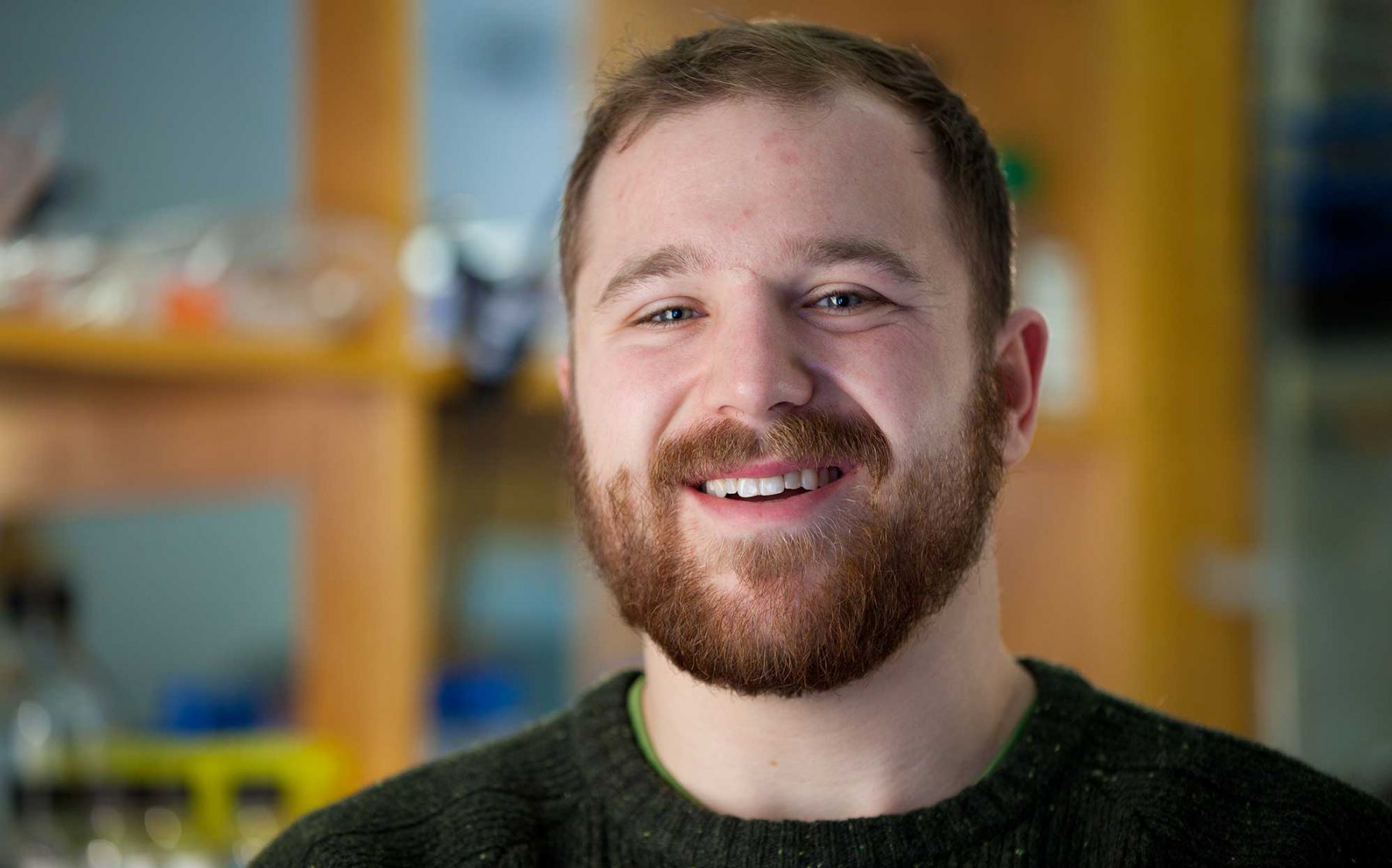About Max
Max Wilson is an assistant professor in the MCDB department. He recently arrived at UCSB from Princeton University where he got his Masters and PhD in Molecular Biology.
Why UC Santa Barbara?
I love how supportive the MCDB department is, both to its students and new faculty. The faculty in this department have an extremely broad set of scientific interests, so you end up learning a lot of new science everyday. I spoke with about 15 faculty in the department about their research programs during my interview process, and all of their fascinating research questions about cells really stuck with me. To me, it underscores how unique biology is, how little we know about it, and how important it is to have scientists with different perspectives exploring diverse problems.
I have not been here for too long, but I really appreciate the open-mindedness and curiosity of the students. The yerba mate on tap is not bad either. It does not take long to realize that Santa Barbara is a special place.
We get to play at the intersection of a host of incredible technologies, from high-end microscopy, to cutting edge synthetic biology, to home-brew electronics!
Max Wilson
MCDB, UC Santa Barbara
Research
My lab is generally concerned with how cells make sense of their environment and how they act on that information. There is an interesting concept from psychology/semiotics called the 'umwelt,' meaning environment in German, that is used to describe the sum total of all sensory data that any organism can experience. We are trying to dissect the cellular umwelt. To do this, we utilize tool that allows us to create a virtual reality environment for cells and to observe how they respond to this precisely controlled virtual reality. Our magical tool is a set of proteins we take from plants that allow us to control what cells are experiencing by shining light on them. We get to play at the intersection of a host of incredible technologies, from high-end microscopy, to cutting edge synthetic biology and home-brew electronics!
How and Why Did You Get Into Your Area of Research?
I became interested in studying cells because I see biology as an incredible technology that I am determined to try to understand the mechanics of. Using fairly sloppy engineering, biology creates self-assembling, full-autonomous entities out of a handful of molecular precursors and a bit of energy. I realized that optogenetics gives unparalleled access to the inner-workings of cells the moment I listened my post-doctoral advisor, Jared Toettcher, give a faculty talk at Princeton.
Collaborators
We also get to work with various professors--currently, we are collaborating with Sebastian Streichan from the physics department and Diego Acosta-Alvear from the MCDB department. We hope to integrate my lab's expertise, optogenetics, with Dr. Streichan’s light-sheet microscopy in order to sculpt organoids as they develop in 3D, and to build in optogenetic control of the stress response pathway to dissect how cells respond to various stressors with unprecedented precision with Dr. Acosta-Alvear. I never get bored because we have so many interesting technologies, questions, and people working in the lab.
